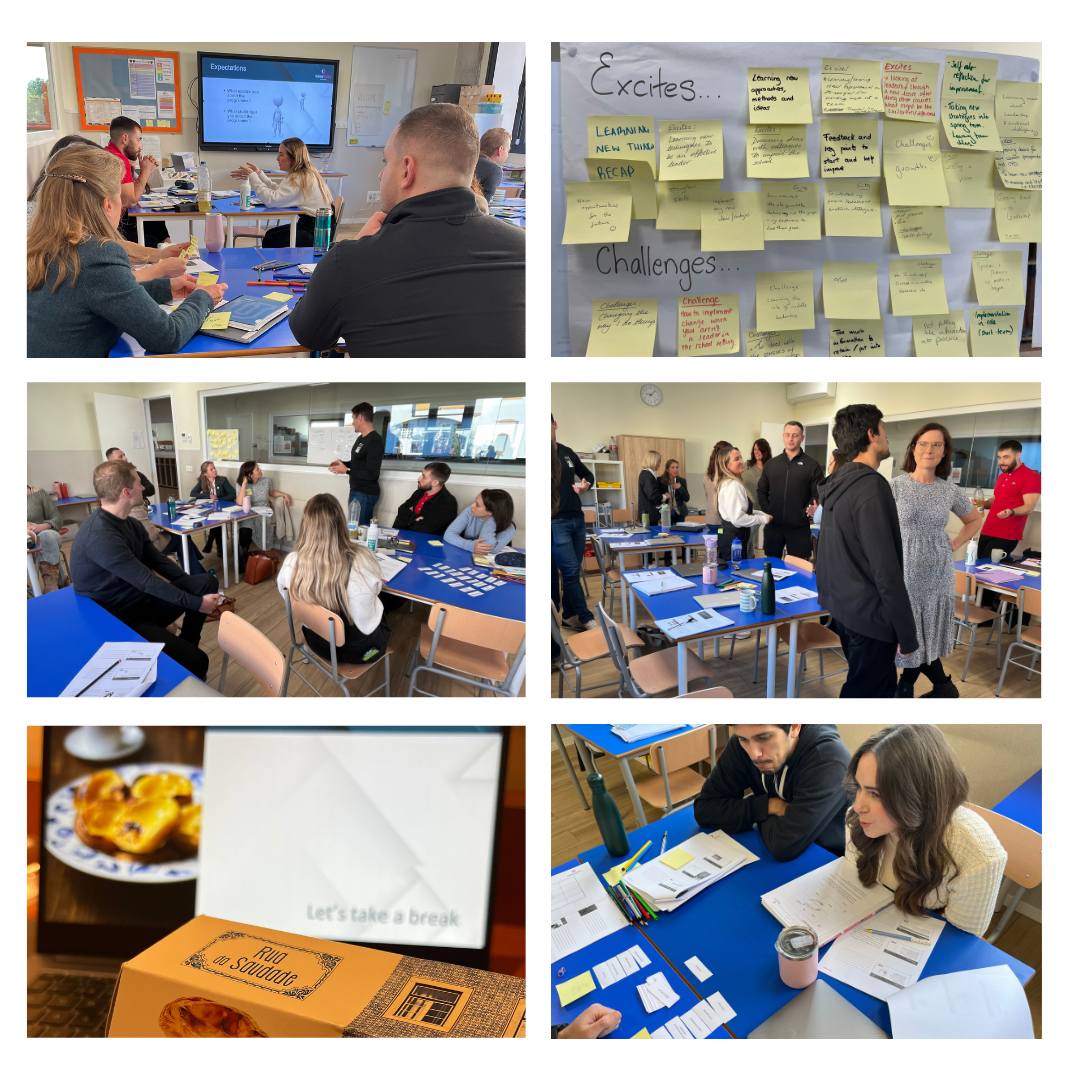Case Study
Facilitating Middle Leadership Development for Outstanding Teaching and Learning
Professional Learning
Teaching and Learning
Local - Regional - Global Impact
Middle Leadership
Team Effectivenss
Leadership Development
Facilitating the development of middle leaders in schools requires a deep understanding of both leadership principles and effective professional learning practices.
Middle leaders serve as a vital link between senior leadership and classroom teachers, and their ability to lead teams, manage curriculum implementation, and drive improvement initiatives is critical to a school’s success.
As a facilitator, the responsibility was to deliver a structured, multi-day flagship progam that would effectively equip middle leaders with the skills they needed to thrive in their roles.
Personal Leadership and Emotional Intelligence
Participants were introduced to the role of the middle leader with a strong emphasis on emotional intelligence (EI). As a facilitator, it was crucial to guide participants through self-analysis exercises that helped them identify their EI strengths and areas for improvement. This involved creating a reflective and safe environment where participants could openly explore their emotional competencies and begin planning for personal change. The skill here was in fostering a space for honest self-reflection and encouraging participants to embrace the growth process.
Leading and Developing Others
The focus shifted to team dynamics, coaching, and feedback. Facilitating this session required a deep understanding of group processes and the ability to model effective coaching techniques. It was essential to introduce participants to the stages of team development and demonstrate practical strategies for leading and coaching their teams. The facilitator needed to be adept at creating collaborative learning experiences, where participants could practice these skills in a supportive setting, thereby enhancing their ability to foster teamwork and provide constructive feedback.
Leading Teaching and Learning
Participants leaned into instructional leadership, where participants learned how to improve classroom performance. As a facilitator, it was important to provide clear, research-based frameworks for observing and evaluating classroom practices. The facilitation involved guiding participants through the process of setting effective targets and delivering feedback that would lead to tangible improvements in teaching and learning. This required the ability to connect theory to practice, helping participants see how their leadership directly impacts student outcomes.
Effective Meetings and Communication
Participants explored strategies making meetings more engaging and practical, along with addressing challenging behaviors. Participants discussed how to use assertive statements and planned for difficult conversations. Attention turned to presentation skills, including content development, effective use of audiovisual tools, and individual preparation, follwed by participants presentation delivery, discussion and feedback. Finally, reviews of learning outcomes and action planning for future steps.
The program successfully prepared middle leaders to take on their roles with greater confidence and competence. The facilitator’s role was key in ensuring that participants not only acquired the necessary skills but also felt empowered to apply them in their professional contexts.
“The best thing about the programme was you, Sarah. You’ve been sincere, genuine and down to earth. Not easy to find good CPD delivered so well.”
- Course particpant on programme faciliation.
Key Facilitation Skills:
Modelling Emotional Intelligence: Facilitators needed to model and encourage self-awareness and emotional regulation. This included guiding participants through exercises that deepened their understanding of EI and its impact on leadership.
Creating Optimal Learning Environments: Effective facilitation involved setting up learning experiences that fostered teamwork and peer learning. This required skills in group dynamics and the ability to create a trusting, open atmosphere for learning.
Connecting Theory to Practise: Facilitators were tasked with making research-based concepts accessible and relevant to participants' daily work. This involved presenting content in a way that was practical and immediately applicable.
Creating Space for Reflection & Feedback: An essential skill for facilitators was the ability to enable meaningful learning experiences which incorportated reflection, feedback, and planning for action. Skilled facilitation was essential to deliver a world-class professional learning program.
This case study reflects collaboration between SP Consultancy founder, Sarah Plews, and Karen Ardley Associates (KAA) in the facilitation of their flagship program, "Leading Learning from the Middle."
Karen Ardley Assoicates is a Supporting Associate of COBIS, the largest premier global association for British schools overseas. KAA was awarded Supporting Associate of the Year award.. Karen Ardley is Managing Director. Directors include Jayne Bennion, Dr. David Porritt and Kate Beetlstone.
What people are saying...
Ready to explore your next step for meaningful change?
Reach out to discuss how we can collaborate for you, your team, your school, or your organization.

